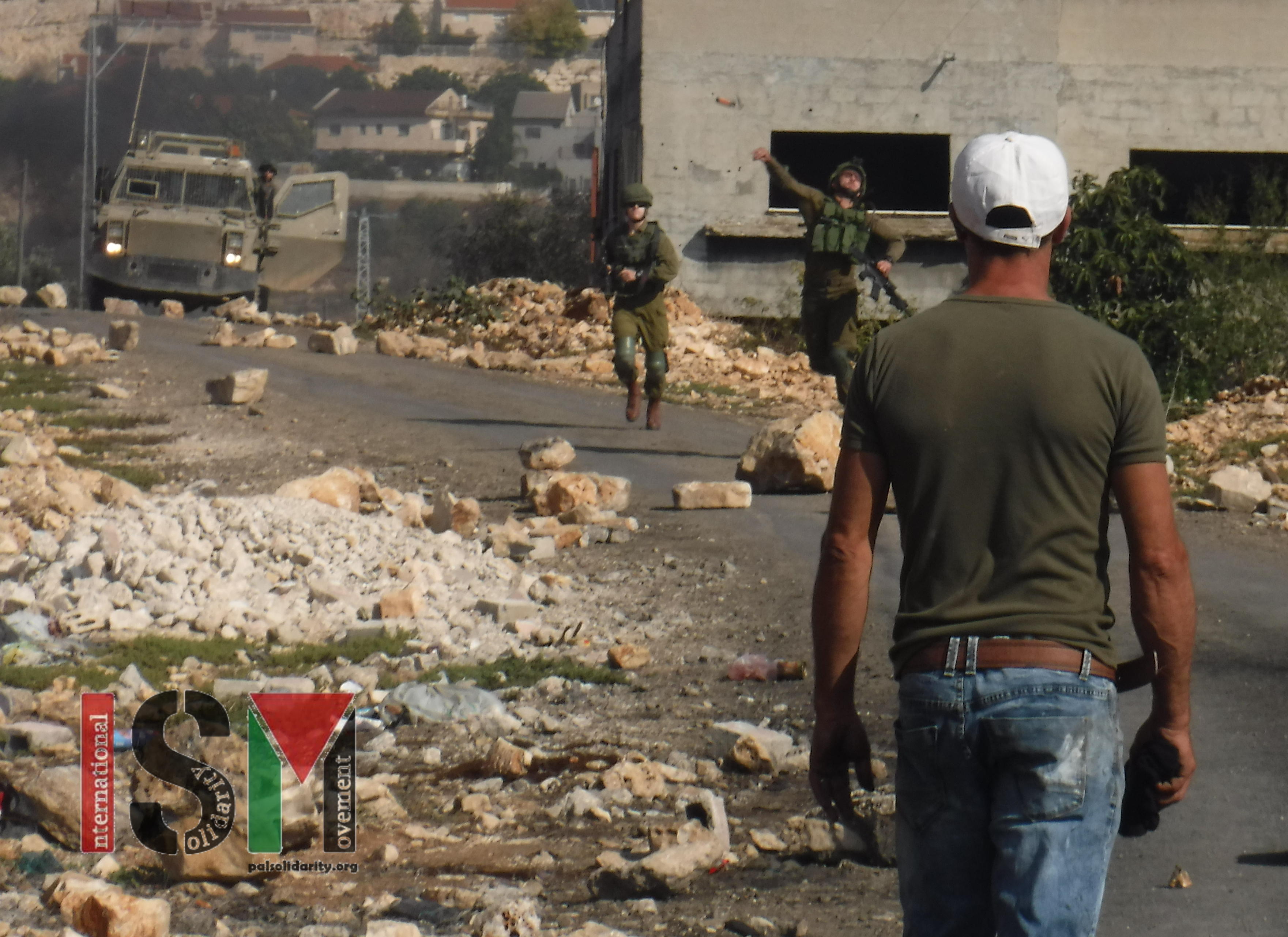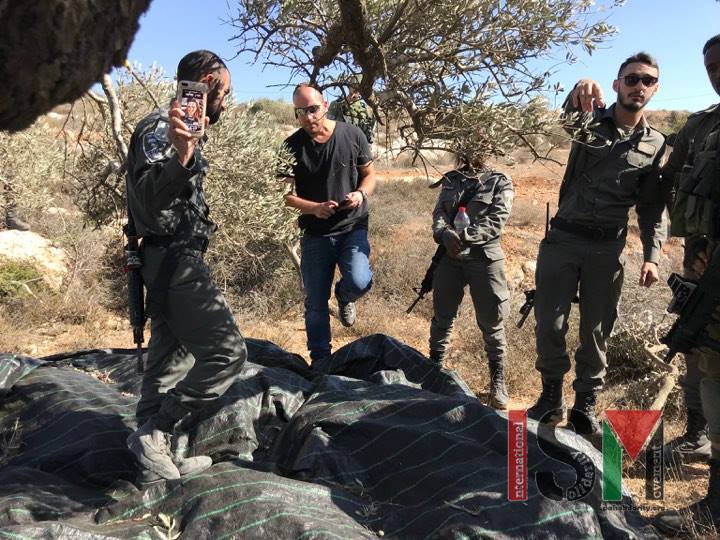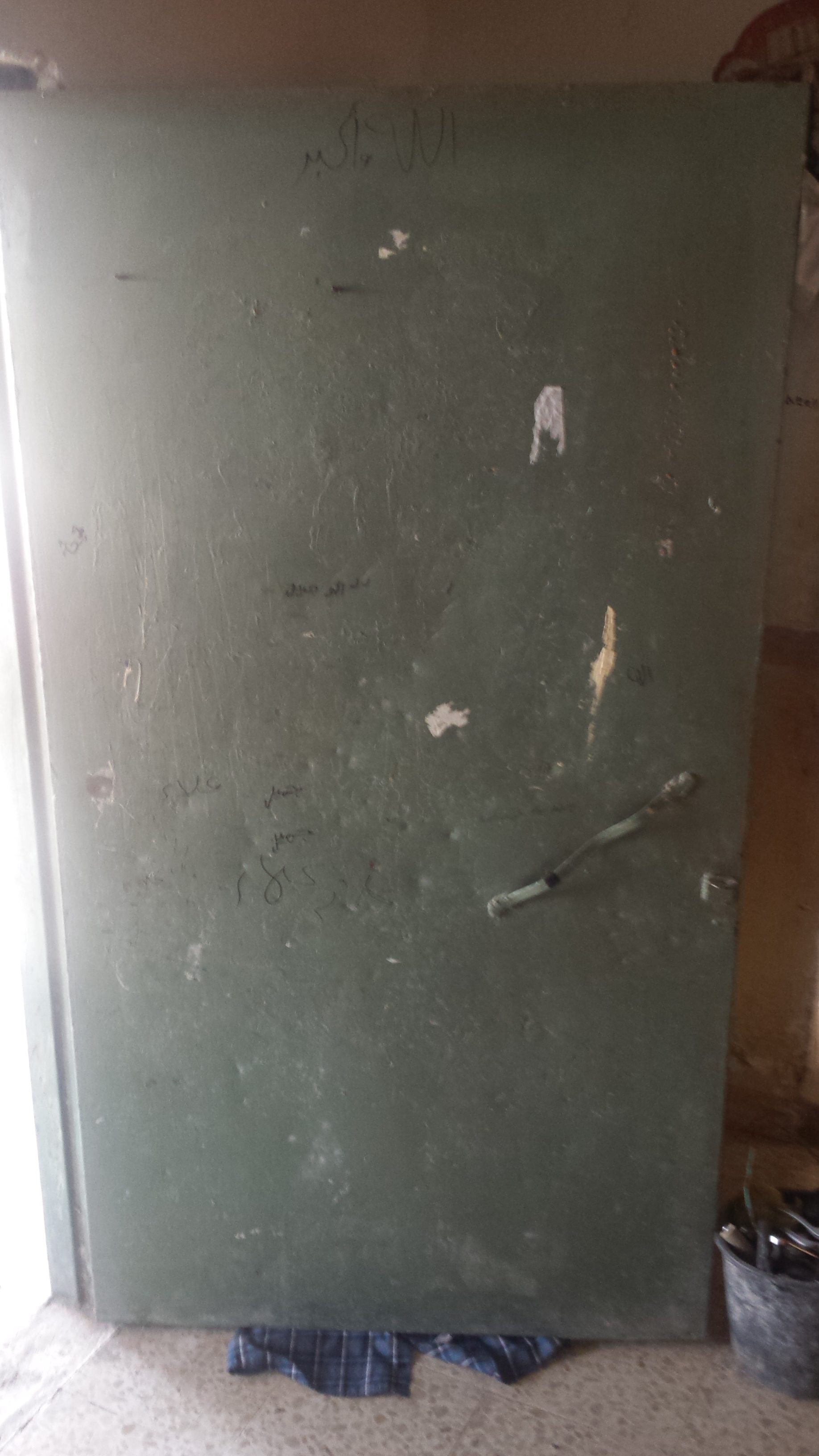-
Kfar Qaddum demo marking 100 years since Balfour suppressed by Israeli military
3rd November 2017 | International Solidarity Movement, Nablus team | Occupied Palestine The weekly demonstration had around 30 participants, with three of them being international women. As usual, the demonstration takes place to protest the closing of the road leading to Nablus. This measure was explained to satisfy “the need of security” for the Kedumin […]
-
Israeli armed forces and settlers harassing farmers in As Sawiya
31st October 2017 | International Solidarity Movement, Nablus team | Nablus, Occupied Palestine On Sunday the 29th of October 2017 – near the Palestinian village As Sawiya – Palestinians and Internationals harvesting olives were met by the Israeli army. Three ISM’ers joined two Palestinian women harvesting in their family land. The family has been facing […]
-
Israeli army arrest son during night raid in Fasayel family house
21st October 2017 | International Solidarity Movement | Nablus Team | Jordan Valley Solidarity | Occupied Palestine The night between Wednesday and Thursday the house of Abu Jamil got raided by the Israeli military. At one AM four military jeeps arrived to upper Fasayel and about 20 Israeli armed soldiers entered Abu Jamils house, forcing the family of 9 […]
Action Alert An Nabi Saleh Apartheid Wall Arrests BDS Bethlehem Bil'in Cast Lead Demonstration Denial of Entry Ethnic Cleansing Farmers Gaza Global Actions Hebron House Demolition International law Israeli Army Jerusalem Live Ammunition Nablus Ni'lin Prisoner Ramallah Rubber-coated steel bullets Settlement Settlers Settler violence Tear-Gas Canister Video



